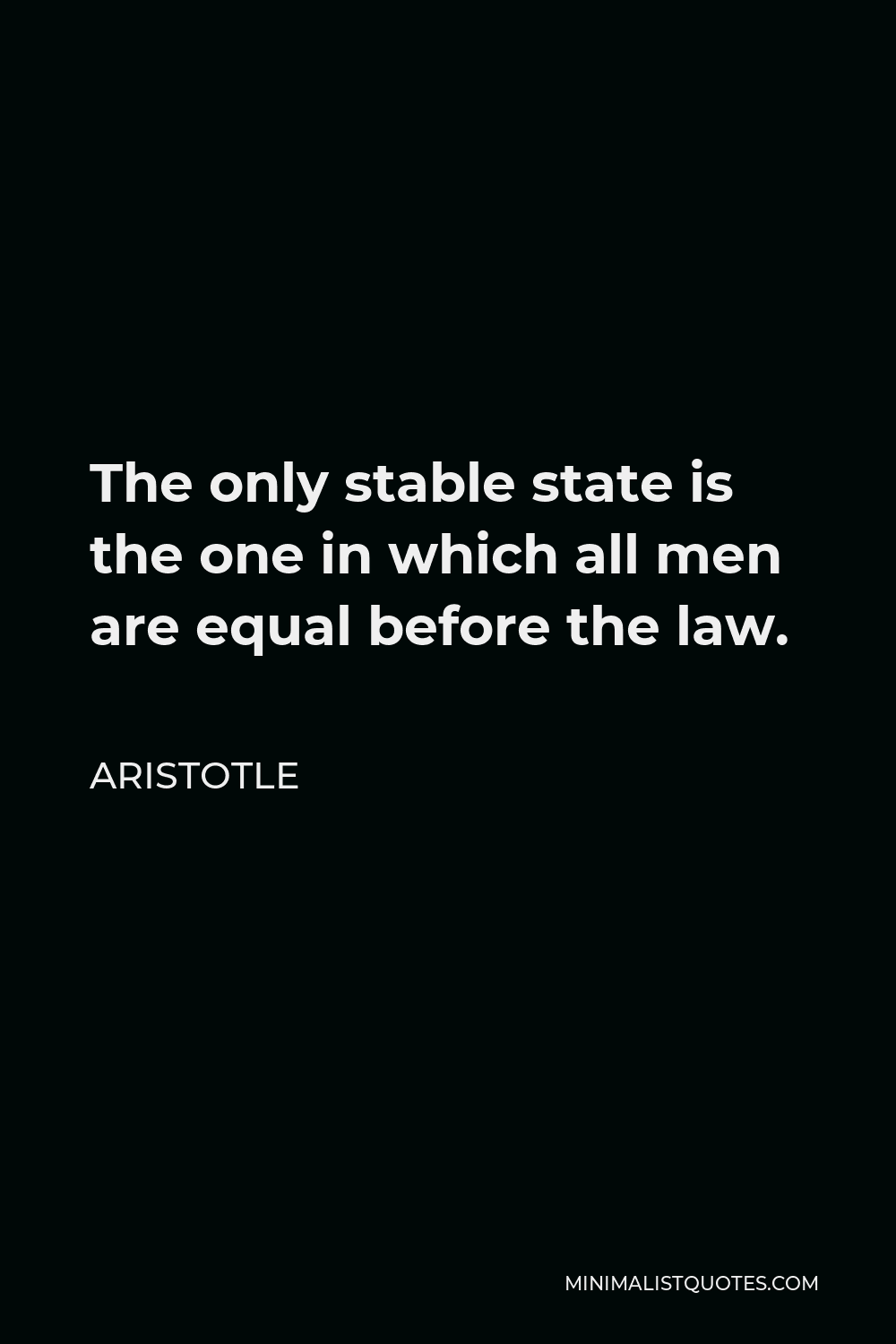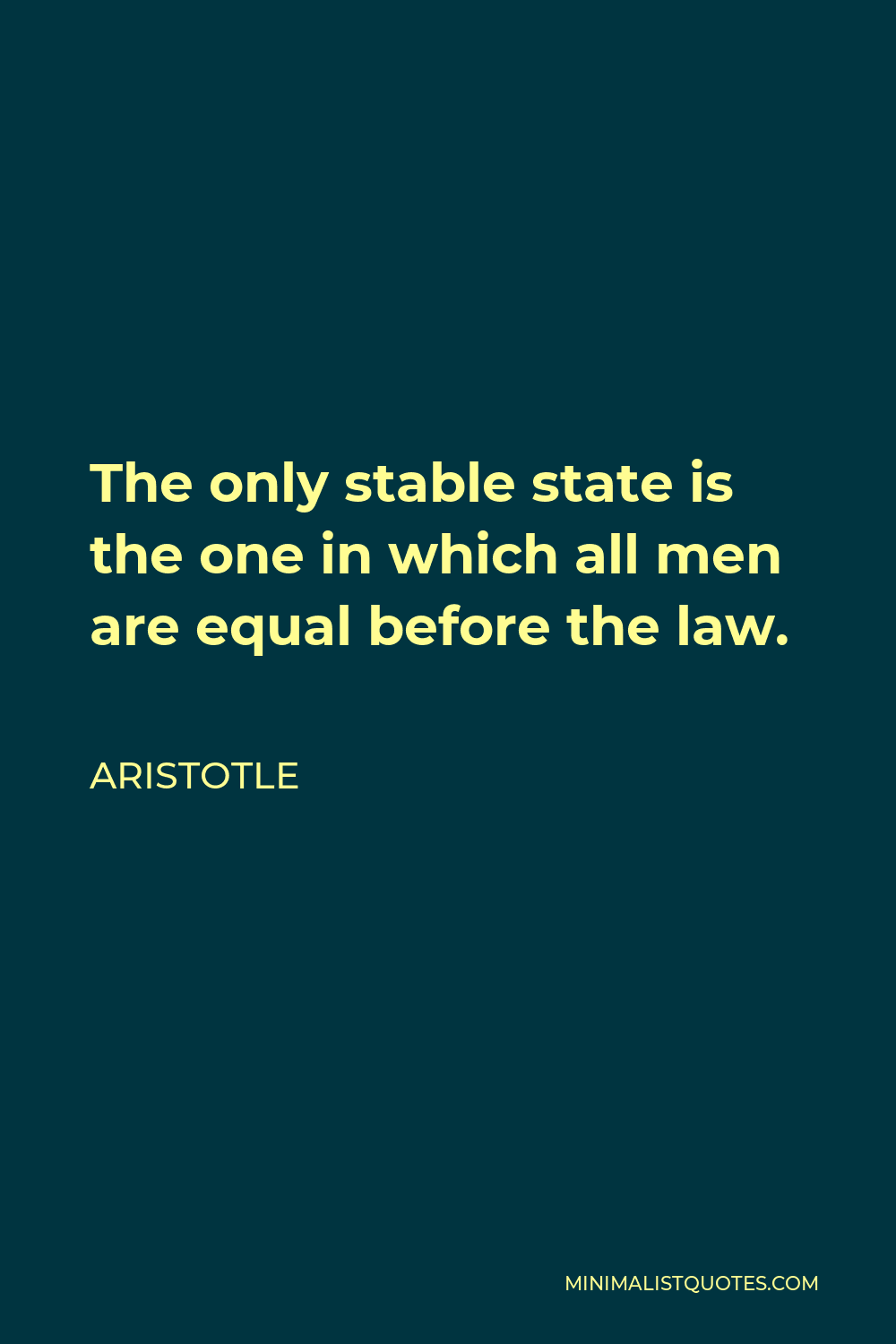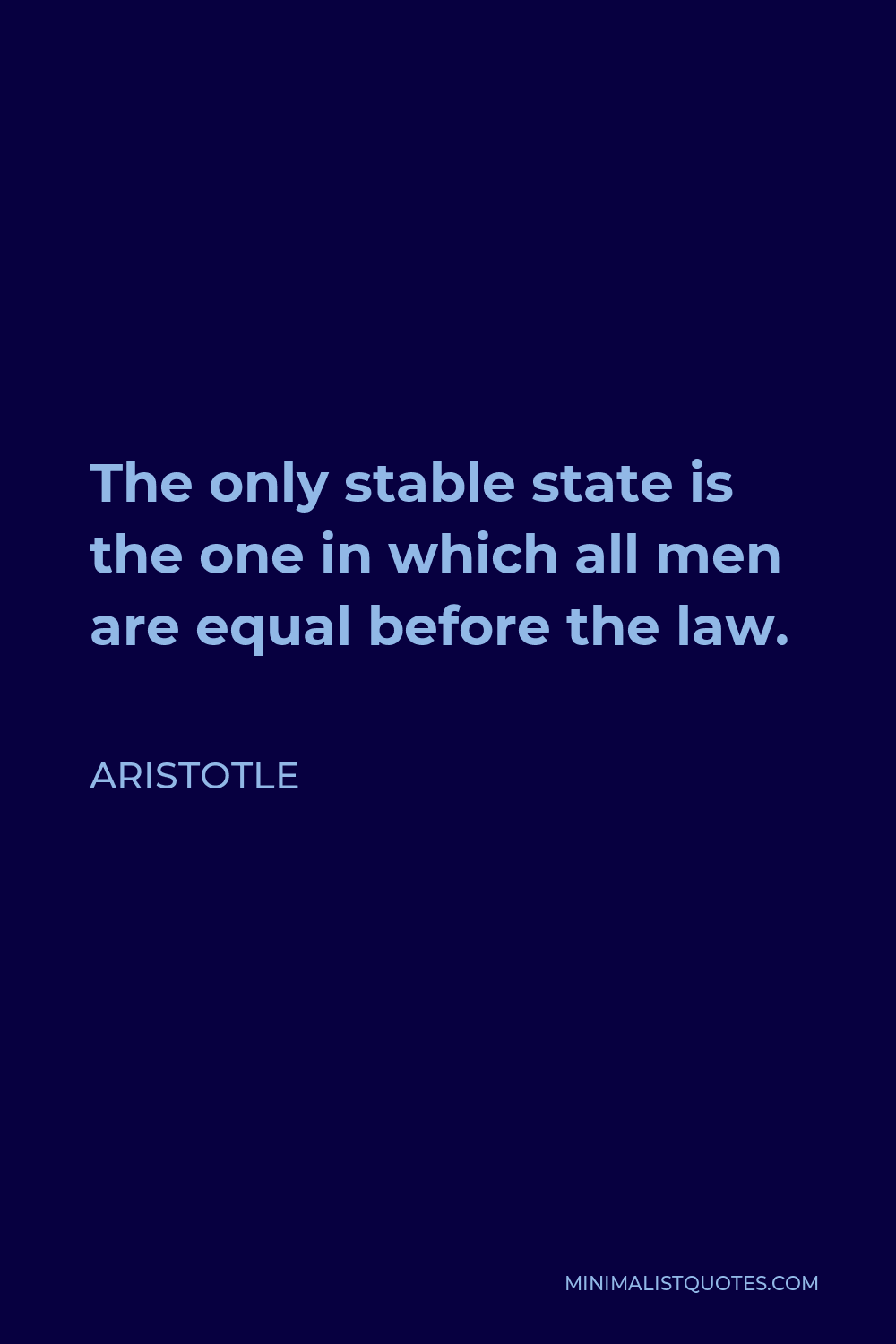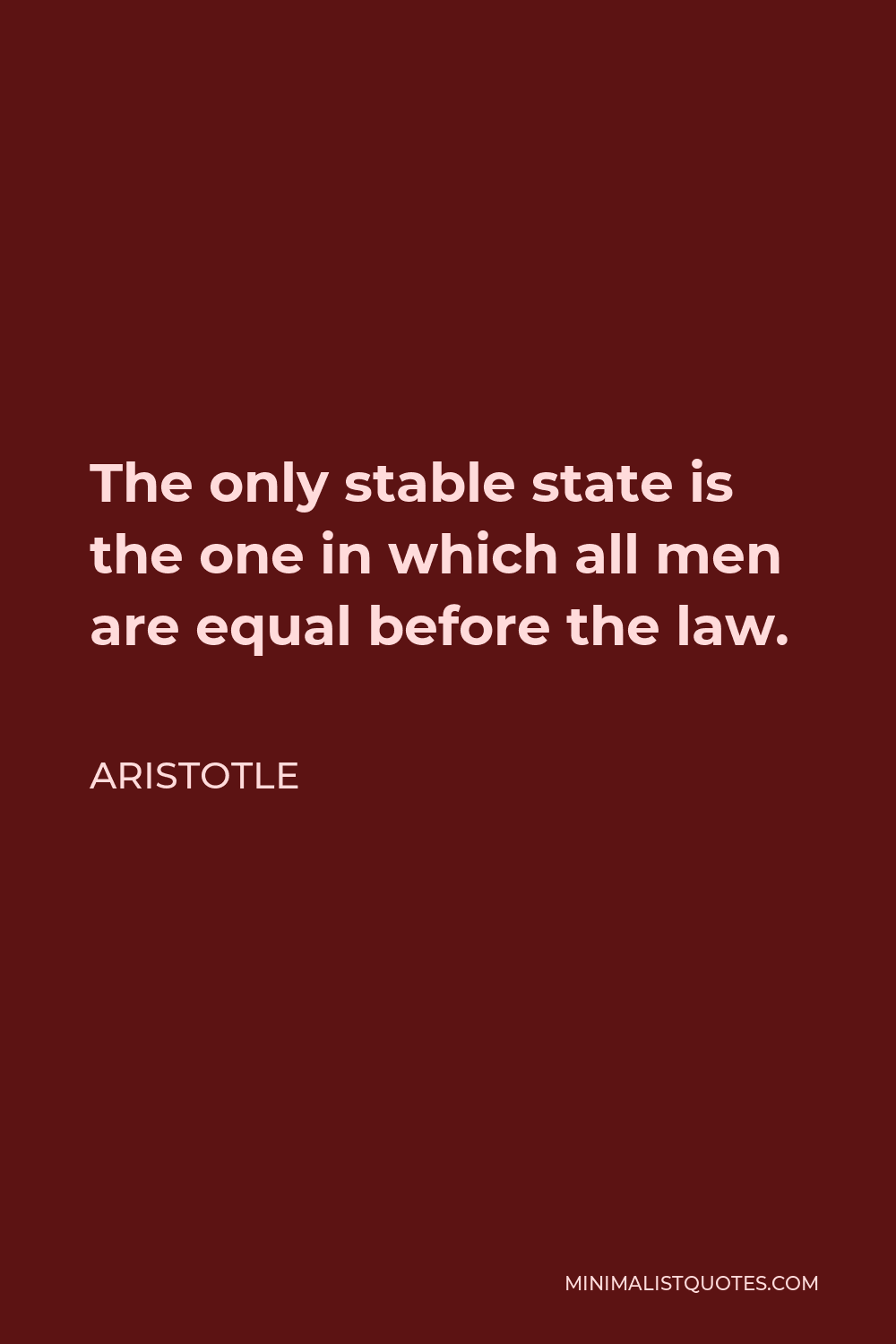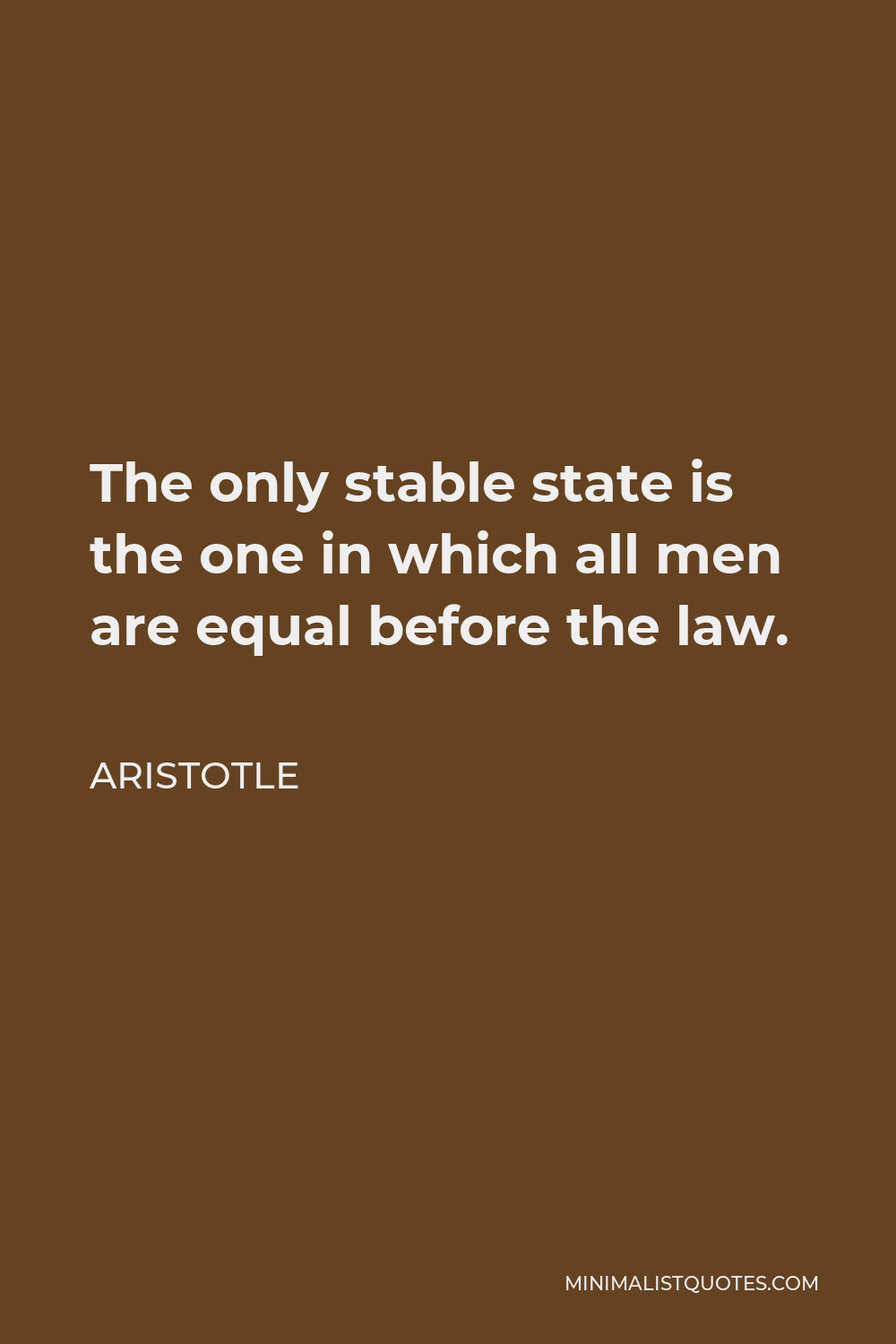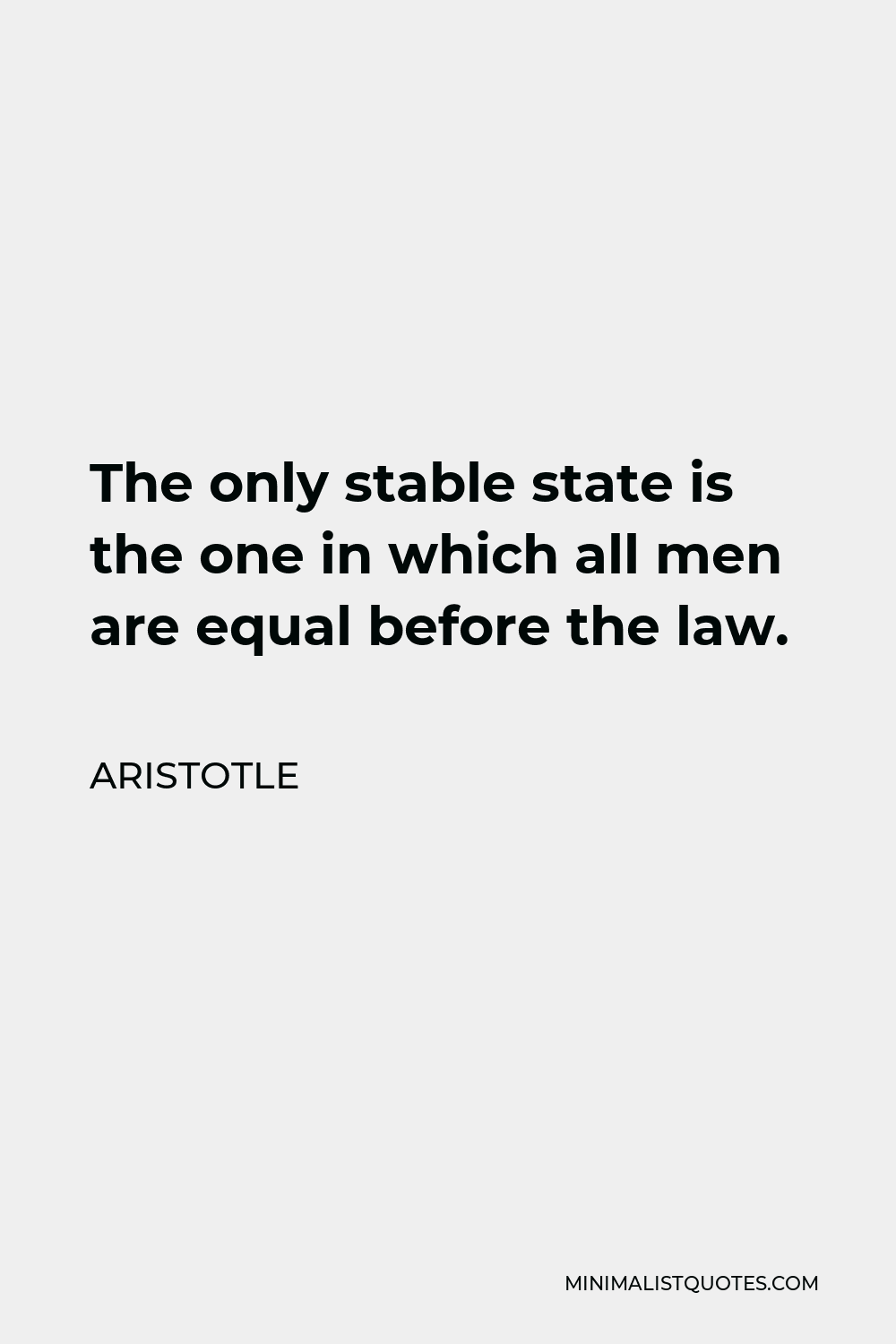Where your talents and the needs of the world cross, there lies your vocation.
ARISTOTLEThe only stable state is the one in which all men are equal before the law.
More Aristotle Quotes
-







-







Fear is pain arising from the anticipation of evil.
ARISTOTLE -





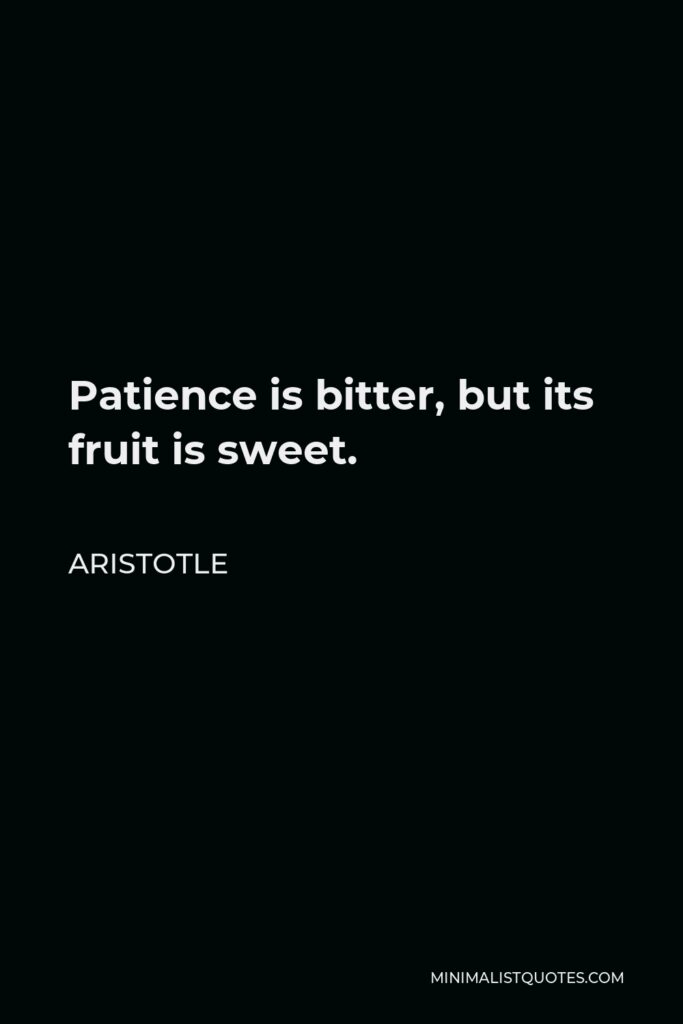

Patience is bitter, but its fruit is sweet.
ARISTOTLE -





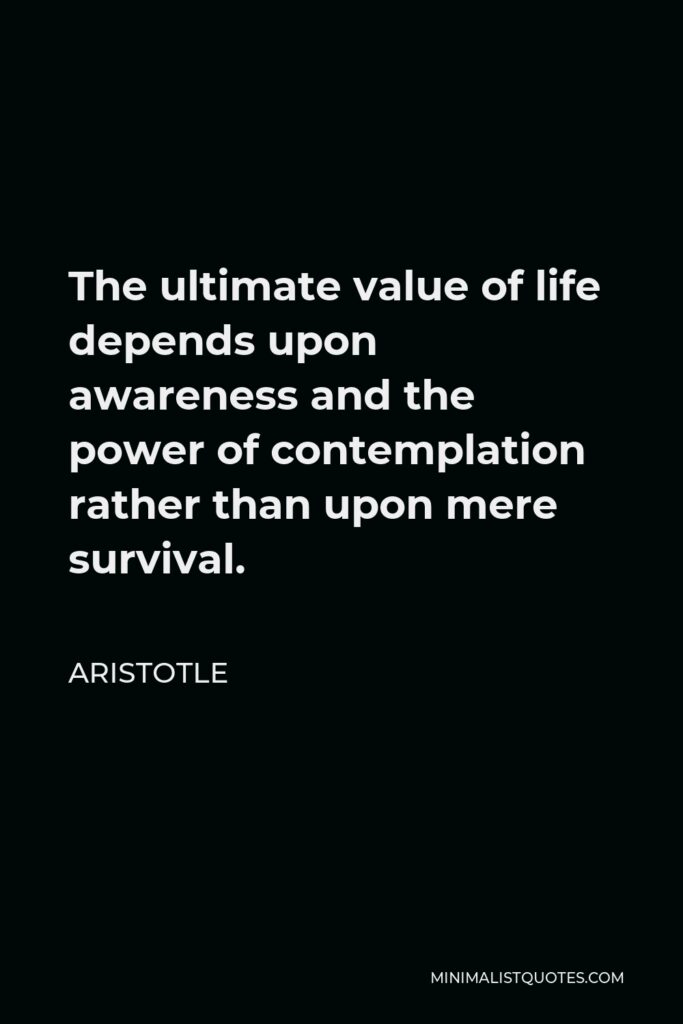

The ultimate value of life depends upon awareness and the power of contemplation rather than upon mere survival.
ARISTOTLE -







He who cannot be a good follower cannot be a good leader.
ARISTOTLE -







He who is to be a good ruler must have first been ruled.
ARISTOTLE -





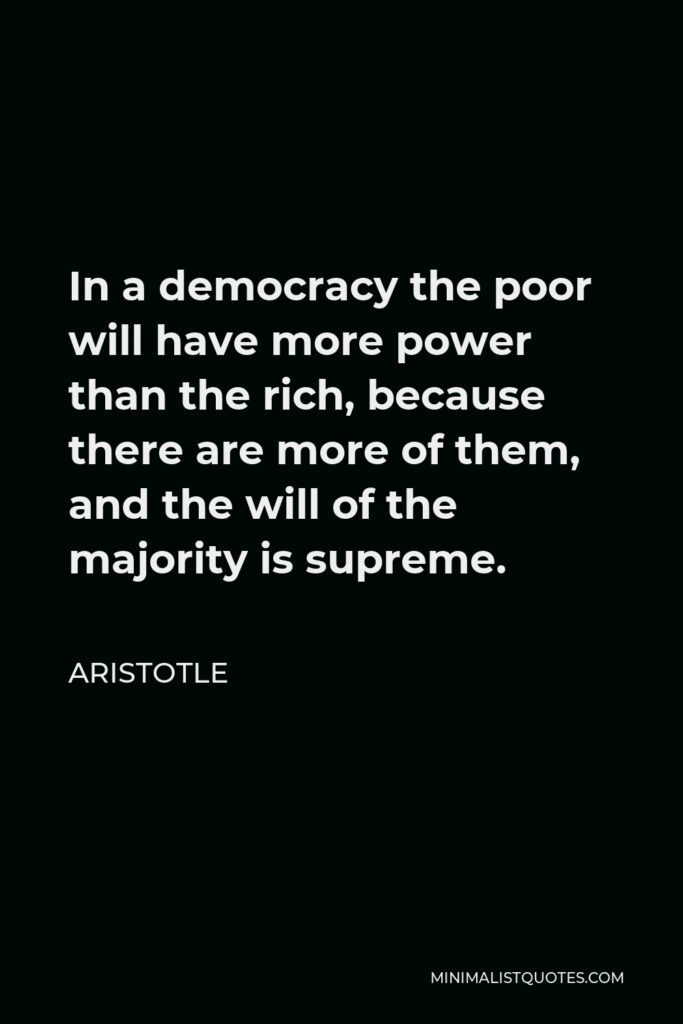

In a democracy the poor will have more power than the rich, because there are more of them, and the will of the majority is supreme.
ARISTOTLE -







All Earthquakes and Disasters are warnings; there’s too much corruption in the world.
ARISTOTLE -







If things do not turn out as we wish, we should wish for them as they turn out.
ARISTOTLE -







Bad men are full of repentance.
ARISTOTLE -





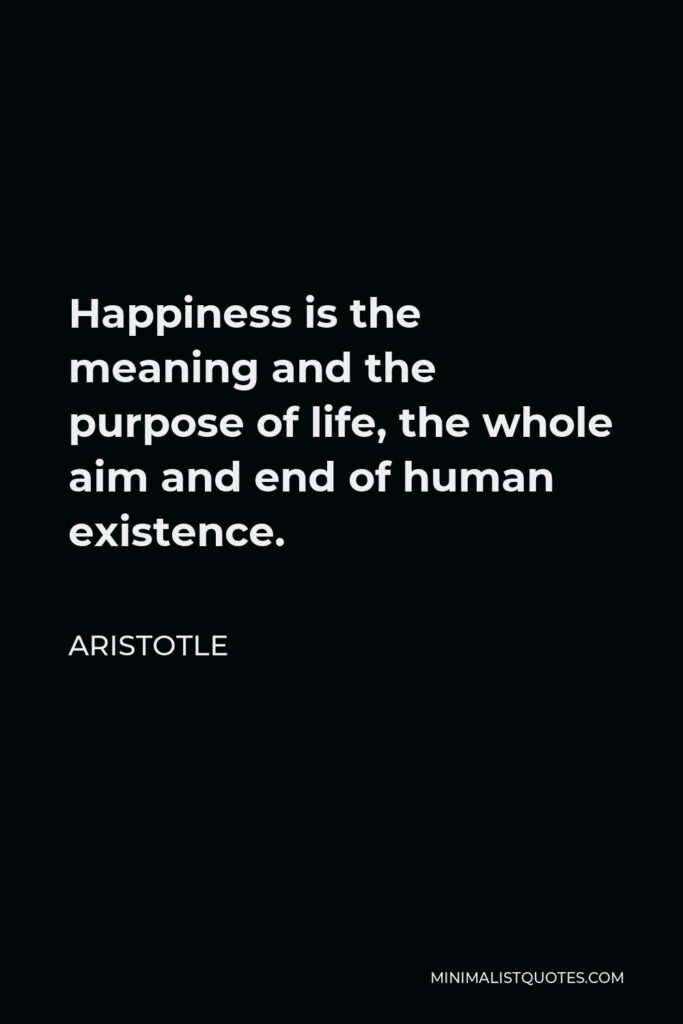

Happiness is the meaning and the purpose of life, the whole aim and end of human existence.
ARISTOTLE -







The high-minded man must care more for the truth than for what people think.
ARISTOTLE -





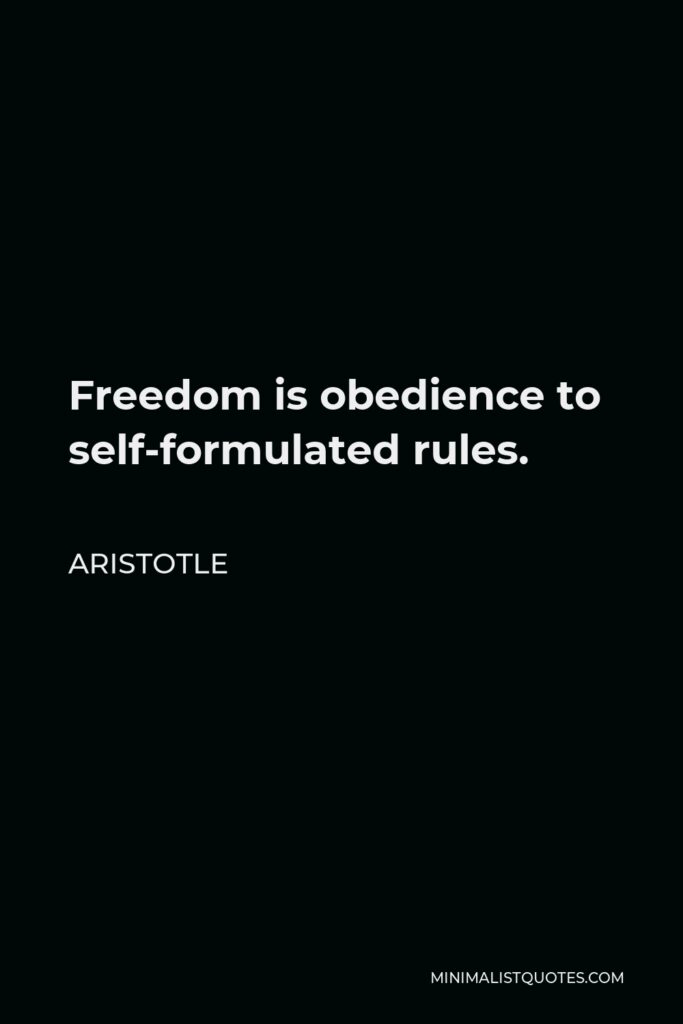

Freedom is obedience to self-formulated rules.
ARISTOTLE -







Give me a child until he is 7 and I will show you the man.
ARISTOTLE -







Wise men speak when they have something to say, fools speak because they have to say something.
ARISTOTLE -







Through discipline comes freedom.
ARISTOTLE
